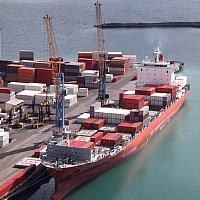(BRUSSELS) – European exporters report a major increase in protectionism in 2017, according to the EU’s annual report on Trade and Investment Barriers, released Tuesday, with China and Russia the main culprits.
The report hows that the European Commission has eliminated the highest number ever of trade barriers faced by EU companies doing business abroad.
“As the world’s largest and most accessible market, the EU is determined to ensure that foreign markets remain equally open to our firms and products,” said Trade Commissioner Cecilia Malmstroem: “Given the recent rise in protectionism in many parts of the world, our daily work to remove trade barriers has become even more important. Ensuring that our companies have access to foreign markets is at the heart of our trade policy.”
Through the EU’s enhanced Market Access Strategy, 45 obstacles were lifted fully or in part in 2017 – more than twice as many as in 2016. Barriers removed spanned across 13 key EU export and investment sectors, including aircraft, automotive, ceramics, ICT & electronics, machinery, pharma, medical devices, textiles, leather, agri-food, steel, paper, and services. Overall, this brings the number of barriers eliminated under the Juncker Commission to 88.
Thanks to those barriers removed between 2014 and 2016 alone, in 2017 EU companies exported an additional 4.8 billion. This is the equivalent to the benefits of many of our trade agreements.
The report also shows that 67 new barriers were recorded in 2017, taking the total tally of existing obstacles to a stark 396 between 57 different trading partners around the world. This confirms protectionist trends identified in previous reports.
China displayed the largest increase in new barriers in 2017, followed by Russia, South Africa, India and Turkey. The Mediterranean region also showed a notable rise in barriers for EU companies. The nine countries with the highest number of trade barriers still in place are all G20 economies.
Examples of barriers eliminated in 2017:
- Recognition of safety standards used by the EU machinery industry in Brazil’s new safety legislation;
- Elimination of administrative barriers for services in Argentina;
- Removal of restrictions on copper and aluminium scrap, and paper in Turkey;
- Removal of animal and plant health and hygiene barriers related to bovine exports from some EU Member States to China, Saudi Arabia and Taiwan;
- Elimination of certain restrictions on poultry exports from some EU Member States to Saudi Arabia and the United Arab Emirates.


